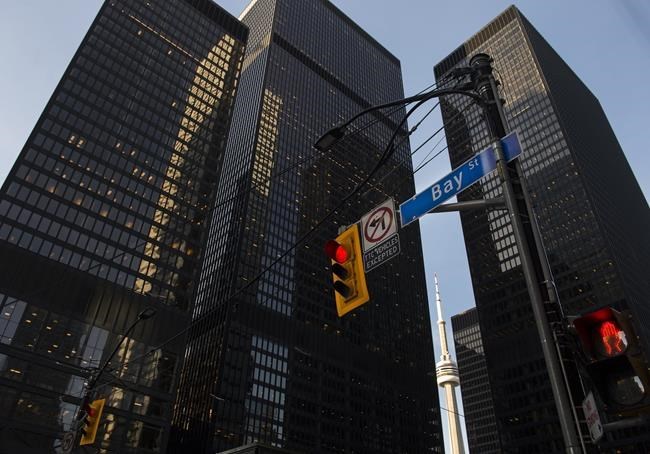TORONTO — North American stock markets fell Tuesday, as weaker-than-expected retail sales in the U.S. raised concerns among investors there as well as in Canada.
The S&P/TSX composite index was down 119.83 points at 20,363.59.
In New York, the Dow Jones industrial average was down 282.12 points at 35,343.28. The S&P 500 index was down 31.63 points at 4,448.08, while the Nasdaq composite was down 137.58 points at 14,656.18.
On the TSX, the majority of subindexes took losses of between 0.5 and 1.5 per cent, with consumer discretionary stocks (down 1.53 per cent) and small-cap stocks (down 1.73 per cent) the biggest losers.
“We did have a down day on the market,” said Michael Currie, vice-president and investment adviser at TD Wealth. “It’s a pretty sizeable one.”
Currie said the biggest story driving markets Tuesday was the release of July retail sales figures south of the border.
“Those were expected to be down 0.3 per cent, and they were down 1.1 per cent,” Currie said. “Some of the major U.S. retailers also reported earnings today ... and they were not so good.”
For example, Currie said, Home Depot shares fell 4.5 per cent in Tuesday’s trading after falling short of analyst forecasts for same-store sales, a key metric in the retail sector. U.S. vehicle sales also fell by 4.3 per cent.
In Canada, two of the biggest losers were Sea-Doo manufacturer BRP Inc., which was down 3.86 per cent at the end of the day, and Canada Goose Holdings Inc., which was down 2.53 per cent.
Currie said investors are likely worried about the COVID-19 Delta variant and its potential impact on retail spending. There are also concerns about the winding down of many of the government relief programs created during the pandemic and how that might influence consumer behavior.
The Canadian dollar traded for 79.22 cents US compared with 79.56 cents US on Monday.
The September crude oil contract was down 70 cents at US$66.59 per barrel and the September natural gas contract was down 11 cents at US$3.84 per mmBTU.
The December gold contract was down US$2 at US$1,787.90 an ounce and the September copper contract was down 12 cents at US$4.21 a pound.
Oil in particular is likely feeling the impact of COVID-related headlines around the world, Currie said. On Tuesday, New Zealand entered a three-day nationwide lockdown in response to the discovery of a single case, and Australia reported it expects cases to rise significantly in the coming weeks.
Also this week, Japan announced it will extend its COVID-19 state of emergency until Sept. 12 rather than lifting it as planned.
“All that has really had a big effect, especially on oil prices,” Currie said. “Usually, when you have bad COVID news, that’s bad for oil.”
This report by The Canadian Press was first published Aug. 17, 2021.
Companies in this story: (TSX:GSPTSE, TSX:CADUSD=X, TSX:DOO, TSX:GOOS)
Amanda Stephenson, The Canadian Press



